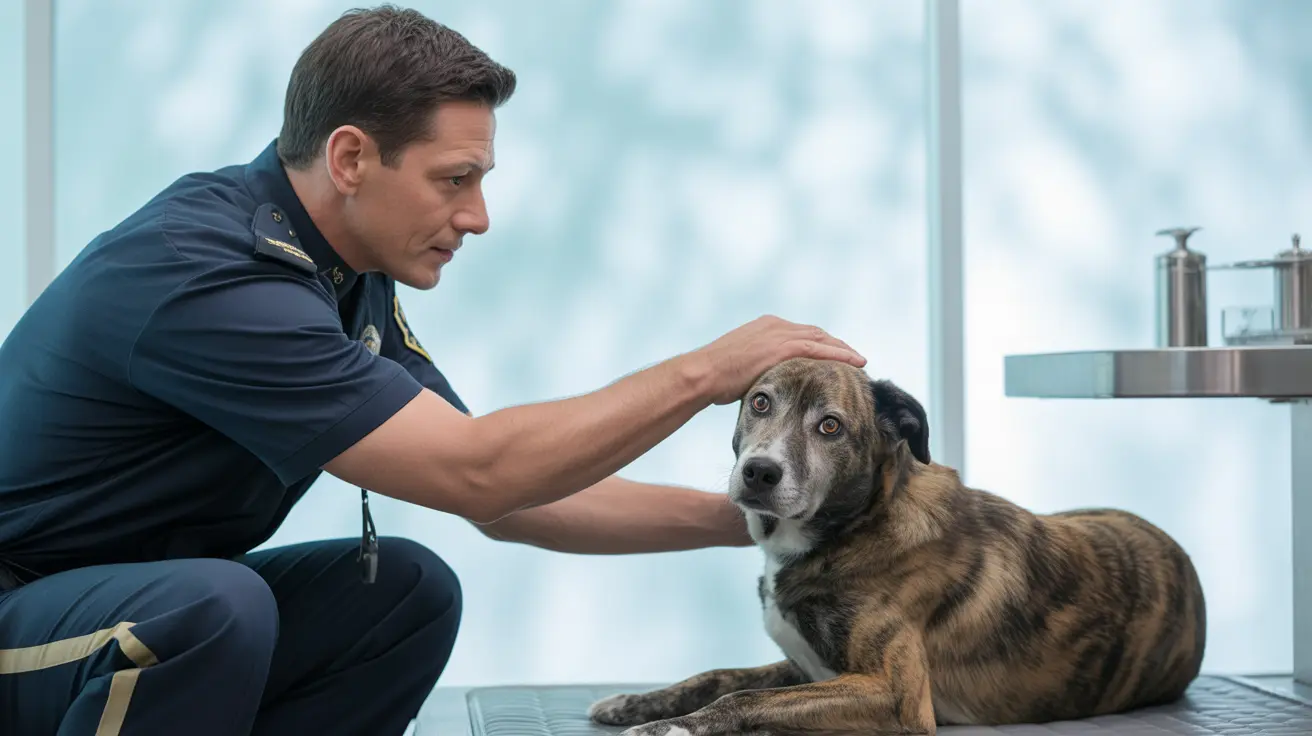When your dog starts throwing up, it can be a worrying experience for any pet owner. While occasional vomiting might be normal, understanding why it happens and knowing when to seek veterinary care is crucial for your pet's health and safety. This comprehensive guide will help you understand the causes, treatments, and warning signs of dog vomiting.
Common Reasons Why Dogs Throw Up
Dietary Issues
The most common reason for dogs throwing up is dietary indiscretion. This includes eating too quickly, consuming spoiled food, or getting into the garbage. Sometimes, even a simple change in diet can trigger vomiting as your dog's digestive system adjusts to new ingredients.
Medical Conditions
More serious causes of vomiting can include:
- Gastrointestinal infections
- Parasitic infections
- Pancreatitis
- Kidney or liver disease
- Foreign body obstruction
- Inflammatory bowel disease
Identifying Different Types of Vomiting
Acute Vomiting
This type occurs suddenly and usually resolves within 24 hours. It's often caused by:
- Eating too fast
- Dietary indiscretion
- Motion sickness
- Stress or anxiety
Chronic Vomiting
Vomiting that persists for more than a few days or occurs regularly might indicate:
- Underlying health conditions
- Food allergies or sensitivities
- Inflammatory bowel disease
- Cancer or tumors
Treatment Options for Dog Vomiting
Home Care
For mild cases of vomiting, you can try:
- Withholding food for 12-24 hours (but always provide access to water)
- Introducing a bland diet gradually
- Feeding smaller, more frequent meals
- Using slow-feed bowls to prevent rapid eating
Veterinary Care
Professional treatment may include:
- Anti-nausea medications
- Fluid therapy for dehydration
- Antibiotics if infection is present
- Surgery for obstruction cases
- Specific treatments for underlying conditions
Prevention Strategies
To help prevent your dog from throwing up:
- Avoid sudden diet changes
- Keep toxic substances out of reach
- Prevent access to garbage
- Maintain regular veterinary check-ups
- Use portion control during meals
- Monitor what your dog eats during walks
When to See a Veterinarian
Seek immediate veterinary care if your dog shows:
- Blood in vomit
- Severe lethargy
- Frequent vomiting
- Signs of dehydration
- Abdominal pain or swelling
- Additional concerning symptoms like diarrhea or fever
Frequently Asked Questions
What are the most common causes of my dog throwing up suddenly?
The most common causes include eating too quickly, dietary indiscretion (eating something they shouldn't), sudden diet changes, and stress. More serious causes can include infections, parasites, or organ problems.
How can I safely manage my dog's vomiting at home before seeing a vet?
For mild cases, withhold food (but not water) for 12-24 hours, then gradually introduce a bland diet like boiled chicken and rice. Monitor your pet closely and seek veterinary care if symptoms worsen or persist.
When should I be concerned and take my dog to the veterinarian for vomiting?
Seek immediate veterinary care if vomiting continues for more than 24 hours, contains blood, or is accompanied by lethargy, fever, diarrhea, or signs of pain. Puppies and elderly dogs should be seen sooner rather than later.
Can certain foods or diet changes cause vomiting in dogs, and how can I prevent it?
Yes, sudden diet changes, rich human foods, and certain ingredients can cause vomiting. Prevent this by making gradual food transitions over 7-10 days and avoiding table scraps or unsafe foods.
What treatments or medications do veterinarians use to stop vomiting in dogs?
Veterinarians may prescribe anti-nausea medications like Cerenia, provide fluid therapy for dehydration, and treat any underlying conditions. Treatment plans are tailored to the specific cause of vomiting.






